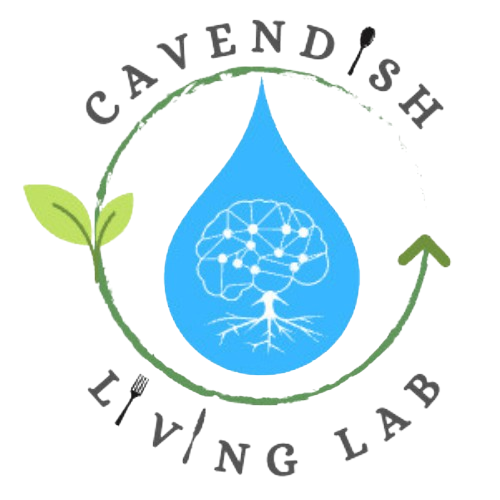The Vital Connection Between Health and Sustainability
There is a profound and intrinsic link between human health and sustainability — one that reflects how the well-being of people and the planet are deeply interconnected. While sustainability is often framed in environmental or economic terms, the health of individuals and communities is an equally critical component. Simply put: a healthy planet supports healthy people, and healthy people are better equipped to protect the planet.
Health and Wellbeing in the Global Agenda
The United Nations recognises this connection in its 2030 Sustainable Development Goals (SDGs), with Goal 3 dedicated to:“Ensuring healthy lives and promoting well-being for all at all ages.”
According to the UN, “healthy people are the foundation for healthy economies.” Yet the importance of health extends far beyond economics. To build inclusive, harmonious and thriving societies, we must also nurture the health of our environment and our communities.
In line with this, Wanyenze et al. (2023) define sustainable health as “a multisectoral area for study, research, and practice towards improving health and well-being for all, while staying within planetary boundaries.” This idea reflects the urgent need to balance our wellbeing with ecological limits.
The Cavendish Living Lab: Merging Health, Nature, and Innovation
At the Cavendish Living Lab (CLL), we explore this dynamic interplay between sustainability and health through practical, community-based solutions. One such focus is hydroponics — a sustainable, soil-less way to grow plants that not only reduces environmental impact but also offers surprising mental health benefits.
For instance, the sound of flowing water, often present in hydroponic systems, has been shown to reduce stress and anxiety. Research has found that water sounds can lower heart rate and blood pressure, positively influence the autonomic nervous system, and aid in cortisol recovery (Hsieh et al., 2023; Zhu et al., 2024). While some studies present mixed results (Lee et al., 2022; Kang et al., 2016), the calming, restorative potential of nature-based elements like water sounds is evident.
At CLL, we harness these findings in our workshops, events and community engagements, encouraging people to reconnect with nature for both personal and planetary well-being.
A Reciprocal Relationship: Nature and Mental Health
As Aqil (2014) notes, humans depend on the natural environment not just for material needs like food and water, but also for psychological, emotional, and spiritual health. This mutual relationship highlights a powerful truth: by caring for the environment, we simultaneously care for ourselves.
Mindfulness, eco-therapy, and time spent in natural environments have all been linked to improved mental health. Thus, mental health advocates have a key role to play in sustainability efforts, and vice versa.
Sustainability, Happiness, and the SDGs
In 2020, the World Happiness Report found a strong correlation between a country’s performance on the SDG Index and its citizens’ subjective well-being. Nordic countries — leaders in sustainability — also ranked highest in happiness.
The relationship is not purely linear. At early stages of development, economic growth heavily influences well-being. But as countries progress, sustainable development becomes a more significant contributor to happiness than economic gains alone. This highlights the importance of embedding well-being into sustainability policies — even if certain changes initially require lifestyle adjustments.
The Health Sector’s Environmental Impact
Healthcare should protect people — but ironically, the sector is a major contributor to climate change. If the global health sector were a country, it would be the fifth-largest emitter of greenhouse gases (Health Care Without Harm, 2019). In the UK, NHS England emits approximately 25 million tonnes of carbon annually.
Emissions stem not only from hospitals and clinics, but also from:
-
Drug and vaccine production
-
Anaesthetic gases (e.g. nitrous oxide)
-
Inhalers using carbon-based propellants
-
Waste disposal and energy-intensive supply chains
Climate change, in turn, worsens health outcomes — causing respiratory illnesses due to air pollution, and increasing the number of people living in disaster-prone areas. According to The Lancet, climate change is the greatest global health threat of the 21st century.
Healthcare Solutions for a Healthier Planet
Fortunately, sustainable transformation is possible. The COP28 Health Declaration marked the first time health was placed at the centre of climate action, urging the development of climate-resilient, low-emission health systems.
Hospitals can lead the charge by:
-
Installing solar panels
-
Reducing waste
-
Upgrading diagnostic devices to energy-efficient models
-
Using AI to reduce unnecessary scans
-
Purchasing renewable energy
-
Promoting telehealth to reduce travel emissions
By investing in green practices now, the healthcare sector can cut emissions, save money, and improve public health outcomes long-term.
Bupa’s Framework for Sustainable Health: The 3 core pillars
1) Sustainable Prevention
Promoting healthy lifestyles, early screening, and disease management reduces the need for intensive treatments — benefiting both patients and the planet.
2) Sustainable Pathways
Improving access and integrating services reduces unnecessary procedures and travel. Innovations like digital triage and one-stop clinics streamline care delivery.
3) Sustainable Practice
Reducing the environmental footprint of healthcare without compromising quality — by minimising waste, using reusable equipment, and sourcing eco-friendly materials.
What Can We Do?
According to the King’s Fund, creating sustainable healthcare requires:
-
Focusing on prevention and early intervention
-
Measuring and managing local environmental impact
-
Embracing telecare and digital tools
-
Rethinking medicine management to avoid overprescription
-
Aligning sustainability goals with patient-centred care
At a personal level, this means making conscious lifestyle choices that support our own wellbeing — such as spending more time in nature, adopting preventive health measures, and advocating for climate-smart healthcare policies.
Join Us at the Cavendish Living Lab
At CLL, we believe that small, mindful steps — like growing herbs hydroponically or enjoying the sound of water in a calming workshop — can spark meaningful change.
Our sessions explore how to live better, feel better, and tread more lightly on the Earth.
Interested in our mental health and sustainability workshops? We’re available on request.
